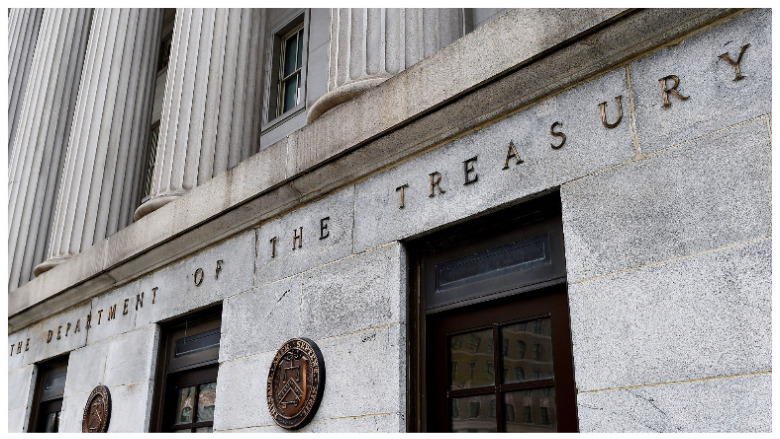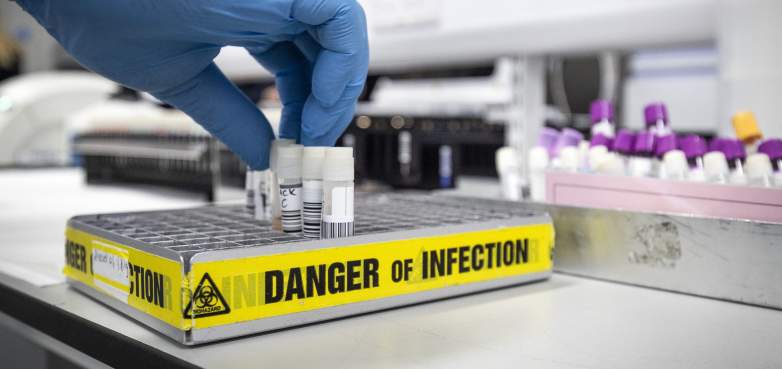
Getty Do people on social security get stimulus checks? When?
With the COVID-19 stimulus checks now approved, people have a lot of questions about them. One question some people have is whether you qualify for a coronavirus stimulus check if you’re on social security. How do you get the check? Do you need to file a tax return if you’re on social security?
The answer is yes, people on social security do get checks, as long as they meet the income requirements. The Internal Revenue Service recently released a new rule that you don’t have to file a tax return to get a stimulus check if you’re on social security.
“The IRS urges anyone with a tax filing obligation who has not yet filed a tax return for 2018 or 2019 to file as soon as they can to receive an economic impact payment. Taxpayers should include direct deposit banking information on the return,” according to its website. The IRS is creating a method for you to get direct deposit of the stimulus check. You can read more about that here.
However, the Treasury Secretary recently announced: “The U.S. Department of the Treasury and the Internal Revenue Service today announced that Social Security beneficiaries who are not typically required to file tax returns will not need to file an abbreviated tax return to receive an Economic Impact Payment. Instead, payments will be automatically deposited into their bank accounts.”
“Social Security recipients who are not typically required to file a tax return do not need to take an action, and will receive their payment directly to their bank account,” said Secretary Steven T. Mnuchin.
Here’s what you need to know:
What Are the Income Qualifications? When Will You Get the Check?

GettyThe coronavirus pandemic has led to the government stimulus package.
When will you get a check? The IRS says that could happen within three weeks, as of April 2, 2020, writing, “The distribution of economic impact payments will begin in the next three weeks and will be distributed automatically, with no action required for most people. Social Security beneficiaries who are not typically required to file tax returns will not need to file to receive a payment. Instead, payments will be automatically deposited into their bank accounts. However, some people who typically do not file returns will need to submit a simple tax return to receive the stimulus payment.”
However, CNN reported that the three-week estimate applies to people for whom the IRS already has direct deposit information on hand. It could take as long as 20 weeks for other people, according to CNN. CNN also reported that social security recipients who already get their social security benefits directly deposited to their bank accounts will get the stimulus check the same way. Other people will be mailed the check.
Who is eligible for COVID-19 stimulus checks? The IRS explains:
Tax filers with adjusted gross income up to $75,000 for individuals and up to $150,000 for married couples filing joint returns will receive the full payment. For filers with income above those amounts, the payment amount is reduced by $5 for each $100 above the $75,000/$150,000 thresholds. Single filers with income exceeding $99,000 and $198,000 for joint filers with no children are not eligible. Social Security recipients and railroad retirees who are otherwise not required to file a tax return are also eligible and will not be required to file a return.
Eligible taxpayers who filed tax returns for either 2019 or 2018 will automatically receive an economic impact payment of up to $1,200 for individuals or $2,400 for married couples and up to $500 for each qualifying child.
Typically, the IRS is using your 2019 or 2018 tax form to decide whether you get the stimulus check (2018 if you haven’t filed 2019 yet).
On March 30, 2020, the IRS announced, “The Treasury Department and the Internal Revenue Service today announced that distribution of economic impact payments will begin in the next three weeks and will be distributed automatically, with no action required for most people. However, some taxpayers who typically do not file returns will need to submit a simple tax return to receive the economic impact payment.”
What if the IRS doesn’t have your direct deposit information? “In the coming weeks, Treasury plans to develop a web-based portal for individuals to provide their banking information to the IRS online, so that individuals can receive payments immediately as opposed to checks in the mail,” the IRS says.
READ NEXT: Can You Get Coronavirus From Money?